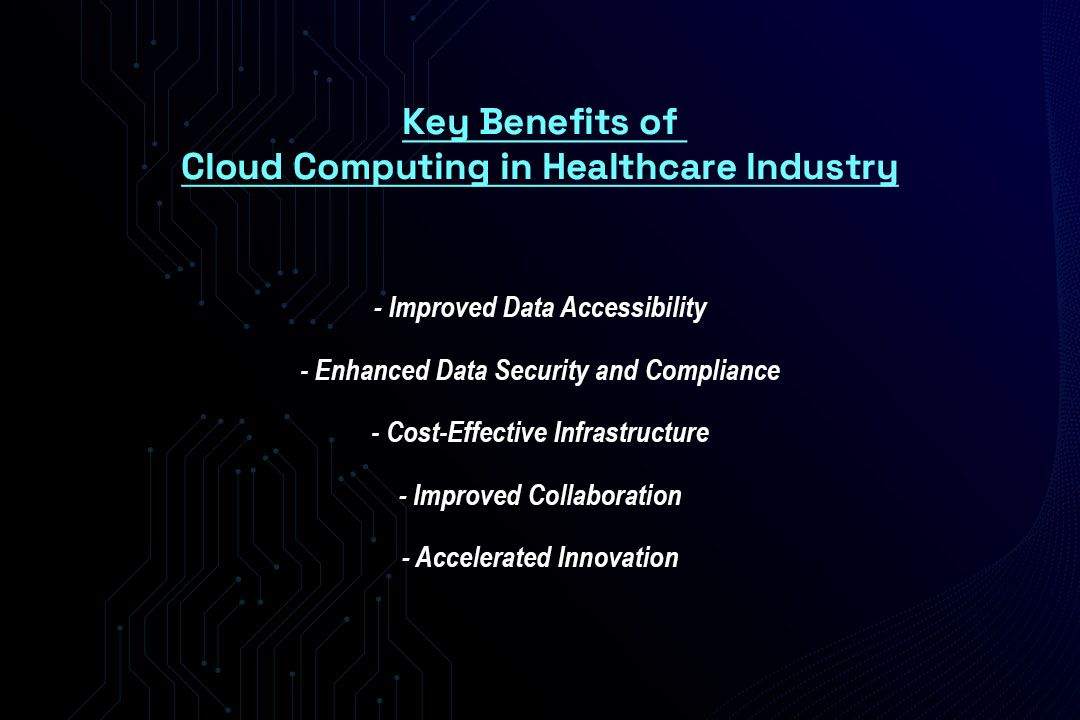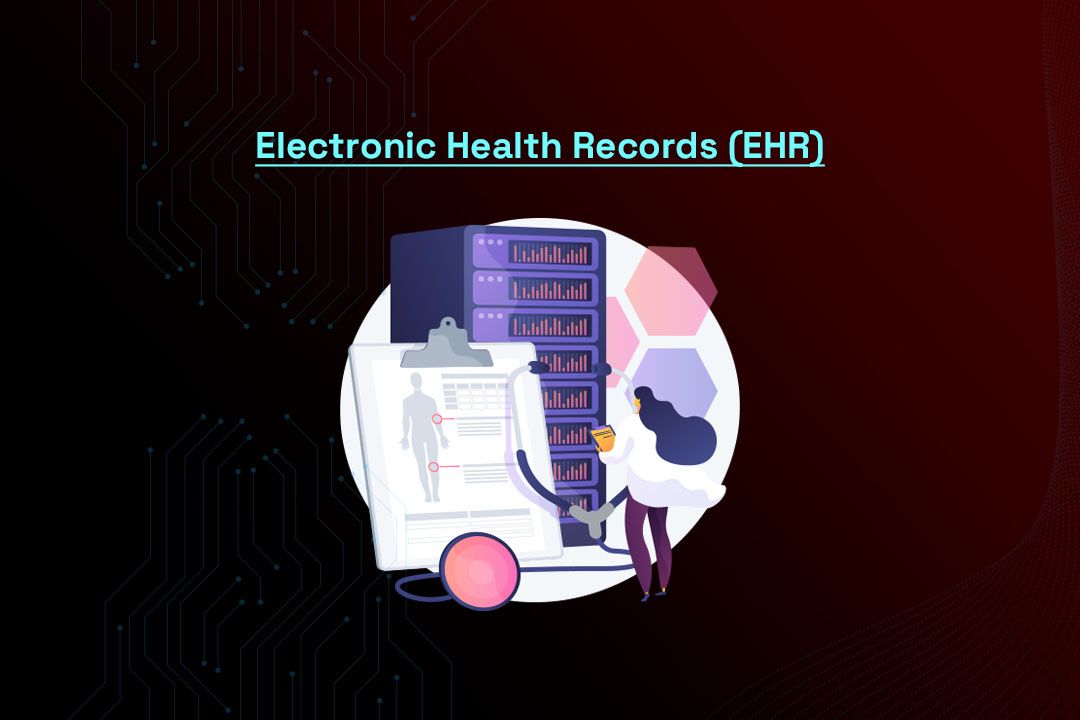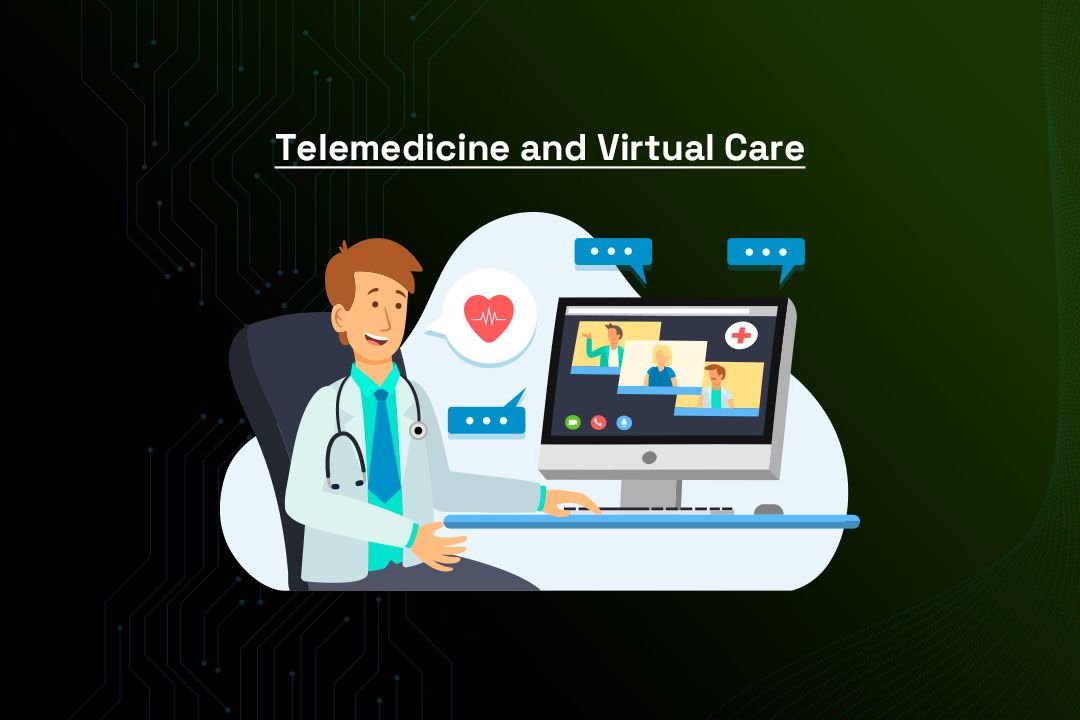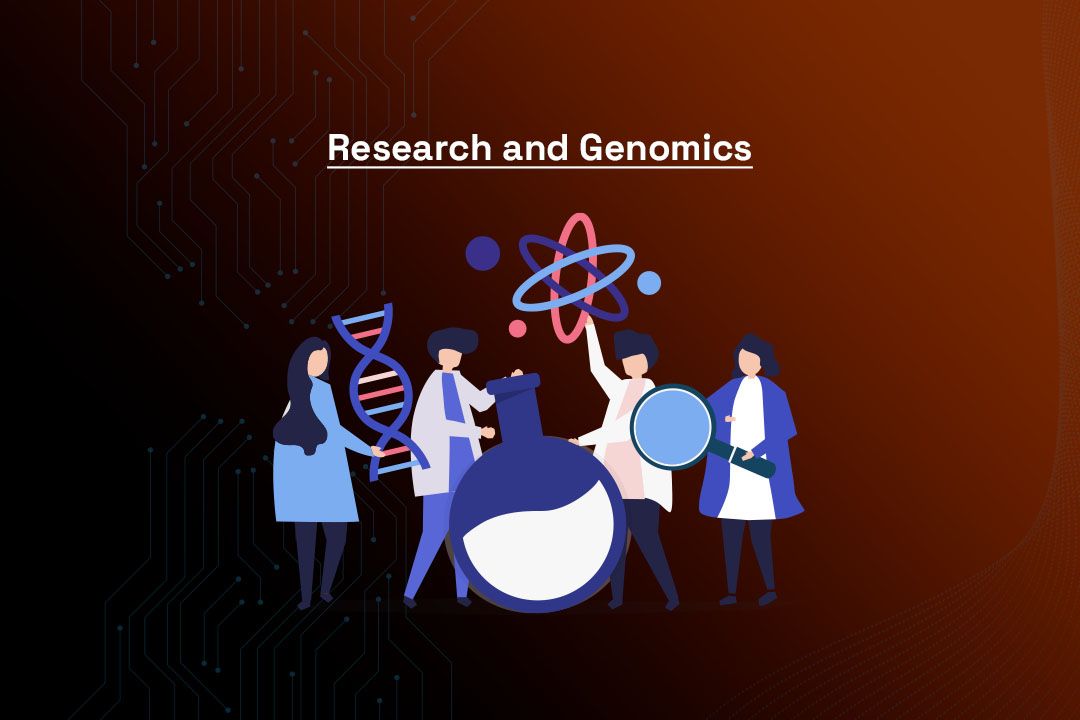By Sara Delgado - Senior Editor | Last updated: July 16, 2025 | 6 Min Read

Healthcare is evolving faster than ever, and cloud computing is at the heart of this transformation. From remote patient monitoring to real-time data sharing and enhanced diagnostics, the cloud is unlocking new possibilities in healthcare.
As data grows and patient needs become more complex, cloud computing in healthcare industry settings is helping providers stay agile, secure, and connected. Whether you're managing patient records, supporting telemedicine, or integrating AI tools, cloud technology is now a must-have in modern healthcare infrastructure.
In this blog, we’ll learn how cloud computing is revolutionizing healthcare, the benefits it brings to different stakeholders, and why this tech trend is set to dominate the industry in 2025.
Cloud computing in healthcare refers to using internet-based services to store, manage, and access healthcare data and applications. Instead of relying on local servers, hospitals and clinics leverage remote servers hosted on the cloud to access scalable and secure digital solutions.
This shift empowers healthcare professionals with real-time access, data-driven insights, and enhanced patient experiences, while reducing IT overhead.

\Cloud technology offers more than just convenient storage—it redefines how healthcare systems operate and interact.
Access patient data anytime, anywhere with cloud storage platforms.
Security is a top concern in healthcare, and cloud solutions offer enterprise-grade protection.
Cloud computing lessens the need for on-premises hardware and IT maintenance.
Team-based care thrives with cloud-enabled collaboration tools.
The cloud enables seamless integration with AI, ML, and IoT technologies.
Hospitals, clinics, research institutions, and healthtech startups are rapidly embracing cloud technologies to optimize patient care, enhance operational efficiency, and bring new opportunities for innovation. Below are key use cases that demonstrate how cloud computing is transforming healthcare in real-world settings:

Migrating EHRs to the cloud has become one of the most impactful transitions in healthcare IT. Isolated data silos, poor interoperability, and high infrastructure costs often limited traditional systems. Cloud-based EHRs solve these issues by offering:

The rise of telehealth—especially during and after the COVID-19 pandemic—has been powered by cloud computing. Remote consultations and digital health services now rely on the cloud for seamless, secure communication and data exchange.

Healthcare research, particularly in genomics and bioinformatics, involves analyzing massive datasets that would overwhelm traditional computing systems. Cloud computing provides the scalability and power required for groundbreaking discoveries.
To successfully adopt cloud computing, healthcare organizations should follow these key steps:
The future of healthcare is digital—and cloud computing in healthcare industry workflows is a key part of that evolution. By embracing the cloud, healthcare organizations can improve patient outcomes, reduce operational costs, and stay ahead of technology trends.
Whether you're a hospital administrator, startup founder, or medical researcher, cloud technology offers the flexibility and power needed to transform care in 2025 and beyond.
Cloud computing offers real-time access to data, enhanced security, cost savings, and better collaboration across care teams.
Yes, most leading cloud providers offer HIPAA-compliant environments, encode, and access controls to protect patient information.
Cloud systems host virtual visits, patient data, and video tools to enable seamless telehealth consultations.
Absolutely. Cloud solutions scale easily, making them cost-effective for small practices and startups.
By enabling massive data analysis and AI integration, the cloud accelerates discoveries in genomics and predictive medicine.
Get the latest updates from the world of science and technology delivered straight to your inbox.

Sara Delgado is a freelance writer, editor, and translator specializing in culture and fashion content with experience across digital, print, and social media based in Madrid, Spain. She was previously the online editor of Schön! Magazine and is now a contributing editor-at-large at Teen Vogue. She has written for Dazed, The Recording Academy, NME, Nylon, BRICK, and many more.
Subscribe to our newsletter to get the latest updates directly in your inbox.

Explore how generative AI product prototype tools speed up and enhance design workflows. Discover top benefits for modern creators.

June 22, 2025
Compare Coursera, Udemy, and LinkedIn Learning to find the right online learning platform. Discover their core features, strengths, and differences.
15/07/2025
Discover how to prepare for blockchain developer jobs with essential skills and tools. Master key technologies and boost your career potential today.
15/07/2025
Master AI outputs with this prompt engineering cheat sheet. Learn how to craft better prompts for smarter, faster results in 2025.
16/07/2025
Discover how to start using Python for data analysis with this beginner’s guide. Learn the essential tools, libraries, and steps to analyze data effectively.
17/07/2025